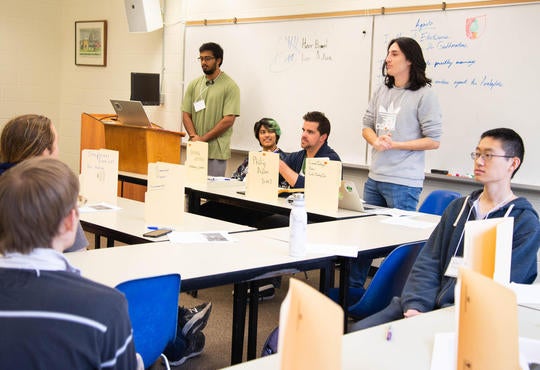Experiential learning starts with everyone having the chance to either do something or say something about their own experience with the topic. But then what should happen?
One of the easiest and most provocative things to do next is to look for patterns in the experiences that people shared—for example, “Looks like all of us have gone through that kind of situation before…” or “Whoa! Your experience with that issue is really different than mine!” or “Why is it that most of the women in the room were very familiar with that particular scenario…?” By highlighting patterns of similarity and difference, education can help us to better understand our experiences of everything from bullying to sexism, and everything from spiritual formation to sociopolitical change.
This is why experiential learning is about not only looking at our experiences but also looking at the way we look. Sounds tough! This kind of learning can really challenge our assumptions about what constitutes knowledge (because experience is more subjective than objective) and what constitutes good teaching (because experiential learning often calls for facilitation more than instruction).
But let’s not get lost in the jungles of educational philosophy. Let’s head into the real-world wilderness for just a moment. The accompanying photo shows nine participants in a recent Anabaptist Learning Workshop called “Canoe Tripping as Spiritual Practice” (September 2019). Experiential learning included preparing and eating meals in the wilderness, paddling canoes, pitching tents, and hanging out around the campfire while discussing spiritual practices. When these nine people looked for patterns in their experience, what do you think they noticed? What were the similarities and differences?
I believe that we will need more and more of this kind of learning. Especially as we face the climate crisis, we will need to look for patterns not only between diverse human communities, but also between humans and other living things. How is your experience of ecological change similar to, and different, from the experiences of other members of our planetary community? As you look for patterns, what gives you hope? What kind of “looking” spurs you to act?
After four years of educational leadership, ALW will undergo a significant change as the partnership between MCEC and Grebel on this initiative will conclude in summer 2020. During its four-year existence, ALW offered more than 50 events and leaders connected with more than 1600 participants for interactive, practical, and engaging learning.






